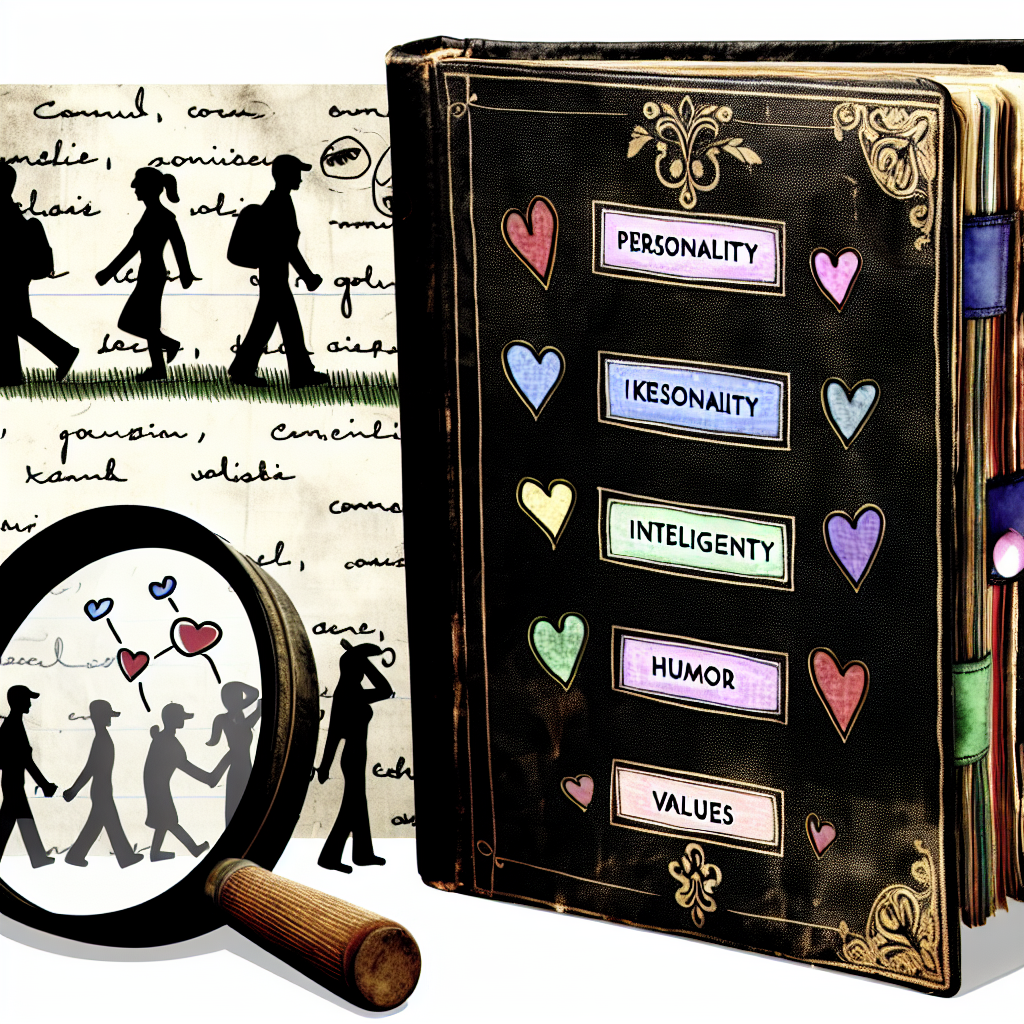The Matchmaker’s Black Book – What We Really Look for in a Potential Partner’s Profile (Beyond the Photos)
Introduction
In today’s fast-paced digital dating world, a profile picture might earn the first glance — but it’s the words you choose and how you present yourself beyond the visual that make the real difference. As expert matchmakers at HitchMe.com, we’ve discovered that a person’s profile can reveal meaningful traits like values, emotional intelligence, and communication style far better than even the most photogenic selfie.
We don’t just pair people based on looks or surface-level interests — we decode a thoughtfully written profile like a relationship blueprint. From subtle phrasing to consistent values, everything you write tells a bigger story. Whether you’re just entering the online dating scene or returning after years, the key to attracting the right person lies within your profile language, not just your pixels.
So if you’re serious about enhancing your romantic prospects, read on — a small tweak in how you describe yourself could make all the difference.
What Matchmakers Really Look For (Beyond the Photos): Insights and Scientific Backing
1. Profile Language and Emotional Intelligence
One of the greatest predictors of relationship success is the level of emotional intelligence (EI) conveyed in your profile. Matchmakers often look for language that demonstrates self-awareness, empathy, and healthy relational expectations. Phrases such as “I believe in accountability,” or “I’ve learned to listen before reacting” point to someone who has done emotional work.
According to research in the Journal of Social and Personal Relationships (Fitness & Curtis, 2005), people with higher EI experience superior relationship satisfaction. In contrast, vague lines like “looking for fun,” or “love to laugh” offer little insight into depth or relational capability.
Consider enhancing your profile by sharing transformative life lessons, how you resolve conflict, or what vulnerability means to you. These show maturity and self-growth, which are attractive to people looking for serious connections.
2. Intrinsic Versus Extrinsic Interests
Does your profile focus on personal joy or public image? The difference between intrinsic vs extrinsic motivation plays a major role in compatibility. For example, a statement like “I hike to reconnect with myself” offers far more connection potential than “I love posting my travel photos on Instagram.”
According to Self-Determination Theory (Ryan & Deci, 2000), individuals motivated by internal rewards (achievement, personal growth, peace) develop healthier and more enduring relationships compared to those driven by money, fame, or status.
So when expressing hobbies or passions, focus on what truly fills you up. Do you volunteer weekly? Journal every morning? Bake because it’s meditative? These signals suggest long-term relationship capacity rooted in authenticity.
3. Consistency and Integrity Across Sections
A surprisingly influential detail is profile alignment — do your words match your self-description throughout? If you describe yourself as “easygoing,” but then list an endless set of rigid partner criteria or declare deal-breakers like a checklist, that contradiction suggests poor self-awareness.
Matchmakers look for interconnected messaging that walks the talk. A consistent profile might include phrases like “I enjoy a healthy routine, but love mixing it up with spontaneous weekends,” showing harmony between structure and openness.
Inconsistency can be a red flag. It may reflect inner conflict or even disingenuous intentions — both of which erode trust and long-term compatibility.
4. Communication Style and Attachment Clues
The verbiage you choose also hints at your attachment style — which can make or break relationship dynamics. A statement like “I’m tired of being lied to please only respond if you’re serious” can give off an avoidant or wounded vibe, likely shaped by past betrayals.
This isn’t to blame — but instead helps matchmakers recognize emotional patterns. According to Dr. Amir Levine’s influential book Attached: The New Science of Adult Attachment, recognizing whether someone is secure, anxious, or avoidant helps determine what types of people they’ll harmonize with.
Profiles that express security — “I prioritize clear communication and kindness” — are more likely to attract partners able to offer emotional stability and growth.
5. Value-Based Vocabulary
Your word choices often reveal deep-seated values, even unintentionally. Matchmakers listen for terms that reflect core values like integrity, family, curiosity, spirituality, creativity, and generosity. A profile that includes, “My Sundays are reserved for cooking for the people I love” sends a strong signal about loyalty and service.
According to a 2021 study in Personality and Individual Differences (Saroglou & Muñoz-García), value similarity — more than interests or age — predicts long-term compatibility and relationship success.
Highlighting your beliefs and priorities, such as sustainability, social justice, or wellness, empowers matchmakers to connect you with a partner who shares those guiding life principles.
Conclusion
In love and dating, the written word reveals far more than any Instagram-worthy moment can. By understanding how your profile reflects emotional depth, motivations, and authentic values, you not only increase your visibility to matchmakers but also to the kind of partner who’s looking for someone exactly like you.
Curate your profile with purpose — speak from the heart, reflect with honesty, and align with your intentions. Because the right language doesn’t just attract attention; it attracts connection.
Concise Summary
Modern matchmakers look far beyond a photo when determining dating compatibility. They assess emotional intelligence, authentic motivations, consistency, attachment cues, and values based on a person’s profile language. Emotionally intelligent and value-aligned individuals — who communicate authentically and consistently — are more likely to form meaningful, long-lasting relationships. By understanding how intrinsic interests and emotional patterns shape compatibility, daters can improve their profiles to attract partners seeking genuine connection and mutual growth.
References
– Fitness, J., & Curtis, M. (2005). Emotional intelligence and relationship satisfaction. Journal of Social and Personal Relationships
– Ryan, R. M., & Deci, E. L. (2000). Self-determination theory and the facilitation of intrinsic motivation. American Psychologist
– Levine, A., & Heller, R. (2010). Attached: The New Science of Adult Attachment and How It Can Help You Find – and Keep – Love
– Saroglou, P., & Muñoz-García, A. (2021). Do shared values matter more than demographics? Personality and Individual Differences

Dominic E. is a passionate filmmaker navigating the exciting intersection of art and science. By day, he delves into the complexities of the human body as a full-time medical writer, meticulously translating intricate medical concepts into accessible and engaging narratives. By night, he explores the boundless realm of cinematic storytelling, crafting narratives that evoke emotion and challenge perspectives. Film Student and Full-time Medical Writer for ContentVendor.com




